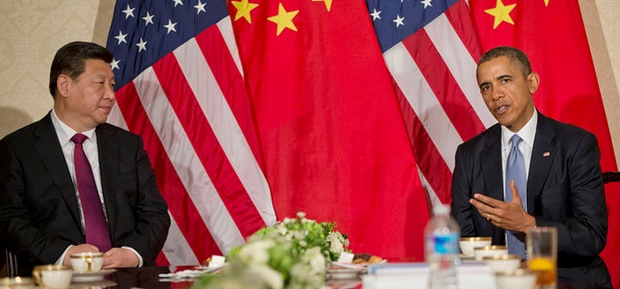Climate Change: the US-China Deal and G20 Communique

It has been a big week for international discussion on climate change. Krislyn Tan reports.
Chinese President Xi Jinping and US President Barack Obama jointly announced last week an ambitious joint plan to tackle climate change, marking the first ever commitment from China to curb its carbon emissions. The deal involves establishing new 2030 emissions targets for both countries: The USA has pledged to reduce its carbon emissions by 28% by 2025 while China has pledged to reach peak carbon emissions by 2030, if not sooner.
In an address to students at the University of Queensland, Obama announced a $US3 billion contribution to the Green Climate Fund to help developing nations deal with climate change, doubling what other countries have pledged ahead of the November 20 deadline.
The timing of the announcement, in the lead up to the G20 in Brisbane, spurred calls for Australia to follow suit: for example, Climate Institute Deputy CEO Erwin Jackson says, “we’ve been obsessed with 2020 targets, when the reality is that the rest of the world is now thinking … significantly beyond that.”
Following the Copenhagen negotiations in 2009, it was widely believed that discussions broke down because China and the USA had not negotiated or cooperated beforehand. The landmark US-China deal, which has been nine months in the making, is a normative shift that has seen the two largest emitters in the world prioritise climate change on their domestic and international agendas. The agreement may catalyse a new global climate change commitment at the United Nations Climate Change Conference in Paris in 2015, and pressure emitter governments to reassess their domestic commitments.
The US-China agreement did not change the Australian Government’s decision not to include climate change as a high priority on the G20 agenda. However, pressure from the USA and EU as well as a clear majority of leaders has led to the inclusion in the leaders’ communique of a significant passage recommending that members commit funds to the UN’s Green Climate Fund, which aims to raise $US10-15 billion by the end of November this year.
A number of commentators have analysed these developments and their likely effect on Australia’s stance on climate change. Associate Professor Peter Christoff of the University of Melbourne, told The World Today, “The Abbott government has been severely embarrassed by this announcement and no more so than at a time when it’s quite clear that the Government has been trying to keep climate change off the agenda of the G20.”
Climate change economist and former ambassador to China Ross Garnaut told Lateline that the US-China deal has thrown the inadequacies in Australia’s approach to climate change into sharp relief: “Australia’s commitment to the United Nations .. is that our target by 2020 is not minus five [per cent of 2000 levels]; it’s minus five, minus 15 or minus 25, depending on what the rest of the world is doing,” he said. “What the rest of the world is doing fully justifies minus 15.” According to Garnaut, in the aftermath of the US-China deal, there is no longer only an economic cost for failing to cooperate with the global climate change agenda, but an international relations cost as well.
Krislyn Tan is an intern with the Australian Institute of International Affairs National Office.
The AIIA National Office is holding an event in Melbourne this week on climate change and energy supply bringing together experts from Australia, Asia and Europe. This has been organised with the Konrad Adenauer Stiftung in collaboration with the University of Melbourne EU Centre on Shared Complex Challenges, the Melbourne Sustainable Society Institute and the Australian-German College of Climate & Energy Transitions. Ross Garnaut is one of the speakers at the public forum.


